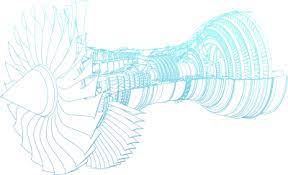
The Power of AI in 3D Modeling
Physna’s core technology lies in its AI-powered algorithms that enable the creation and analysis of 3D models. By leveraging machine learning and computer vision, Physna’s platform can automatically generate accurate 3D models from existing data or even from physical objects. This eliminates the need for manual modeling, saving time and resources for businesses across different sectors.
The AI algorithms employed by Physna can also analyze existing 3D models to identify similarities, differences, and patterns. This capability is particularly useful in industries such as manufacturing, where companies often deal with complex assemblies and parts. Physna’s technology can quickly identify redundant or similar components, helping engineers optimize designs and streamline production processes.
Applications in Manufacturing and Engineering
Physna’s AI-powered 3D modeling technology has significant implications for the manufacturing and engineering sectors. By automating the creation of 3D models, companies can accelerate product development cycles and reduce costs associated with manual modeling. Additionally, the ability to analyze existing models can lead to improved design efficiency and enhanced collaboration among teams.
In manufacturing, Physna’s technology can aid in quality control by comparing 3D models of finished products with the original design specifications. Any deviations or anomalies can be quickly identified, allowing for timely adjustments and improvements. This level of accuracy and automation can greatly enhance productivity and reduce errors in the manufacturing process.
Advancements in E-commerce and Retail
Physna’s AI-powered 3D modeling technology also holds promise for the e-commerce and retail industries. By generating realistic 3D models of products, online retailers can provide customers with a more immersive shopping experience. Customers can view products from different angles, zoom in for detailed inspection, and even visualize how they would look in their own environment.
Moreover, Physna’s technology enables the creation of virtual showrooms, where customers can virtually browse through a wide range of products. This not only enhances the shopping experience but also reduces the need for physical inventory, leading to cost savings for retailers. Additionally, the ability to generate 3D models from physical objects opens up possibilities for customization, allowing customers to visualize personalized products before making a purchase.
Impact on Healthcare and Biotechnology
The healthcare and biotechnology sectors can also benefit from Physna’s AI-powered 3D modeling technology. Accurate 3D models of human anatomy can aid in surgical planning, medical education, and the development of new medical devices. Physicians can use these models to simulate complex procedures, improving surgical outcomes and reducing risks.
Furthermore, Physna’s technology can assist in drug discovery and development by enabling researchers to analyze molecular structures in 3D. This can help identify potential drug targets and optimize drug design, ultimately leading to more effective treatments. The ability to generate 3D models from physical samples also opens up avenues for analyzing biological structures and understanding disease mechanisms.
Conclusion:
Physna’s recent funding round of $20 million highlights the growing interest in AI-powered 3D modeling technology. With its innovative algorithms and applications across various industries, Physna is poised to disrupt traditional 3D modeling methods. By automating the creation and analysis of 3D models, businesses can streamline processes, enhance collaboration, and improve overall efficiency. As Physna continues to develop its platform and expand its reach, the potential for AI-powered 3D modeling to transform industries is becoming increasingly evident.